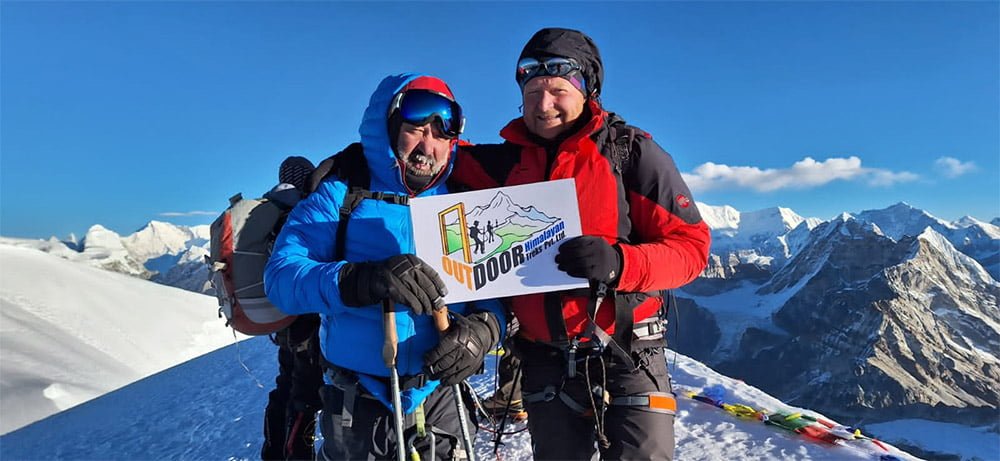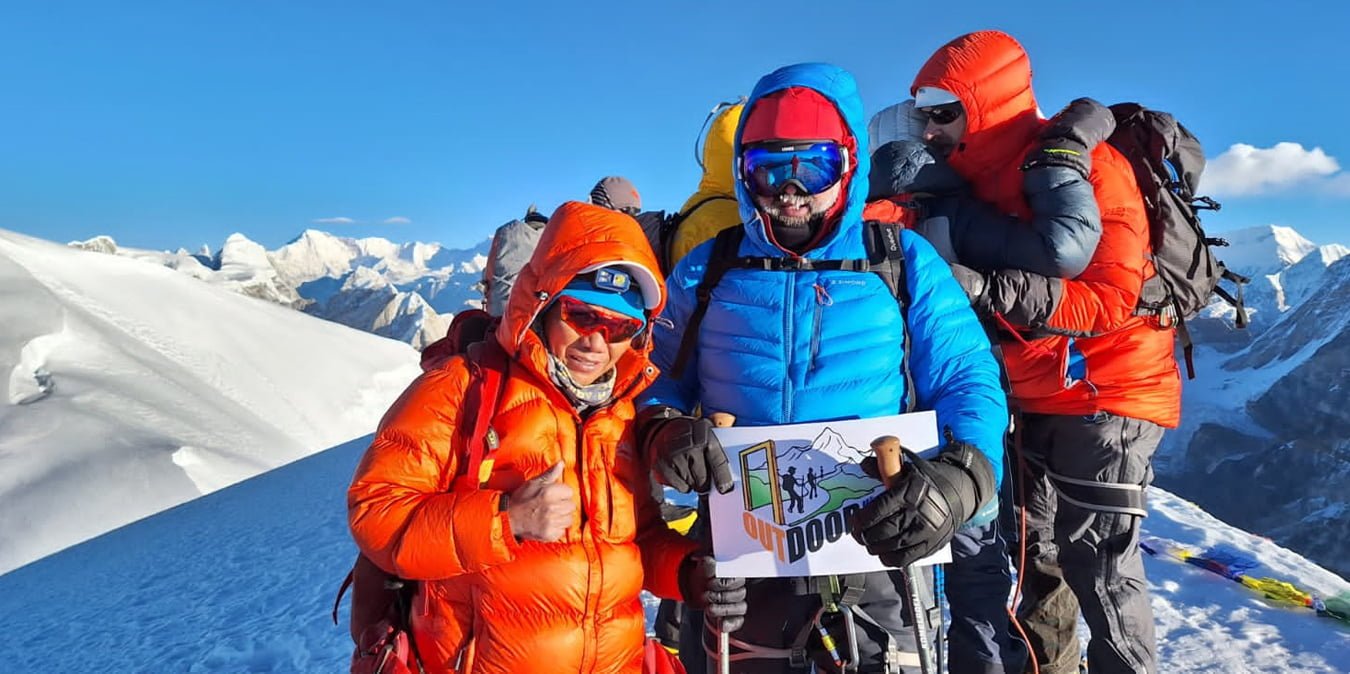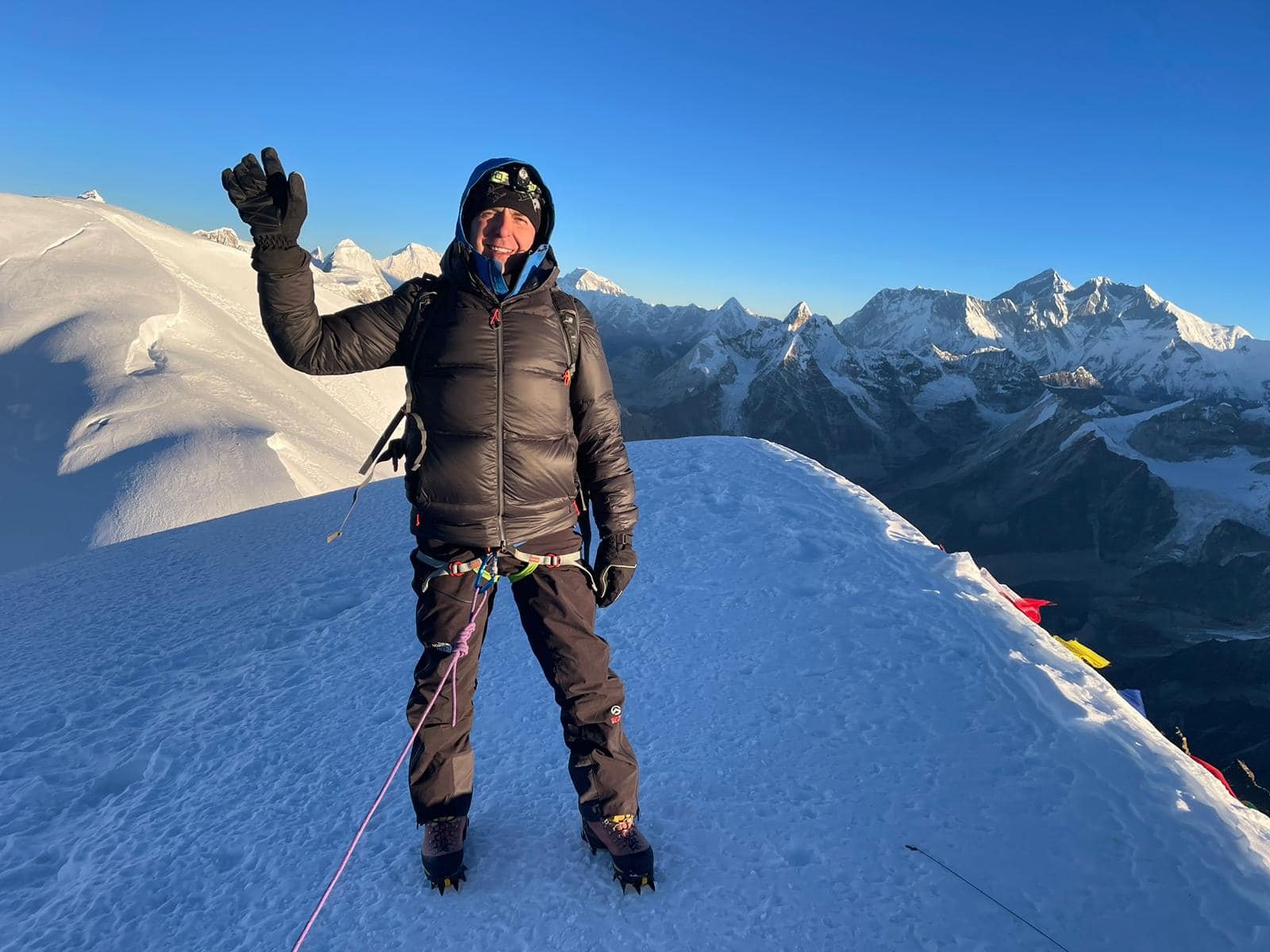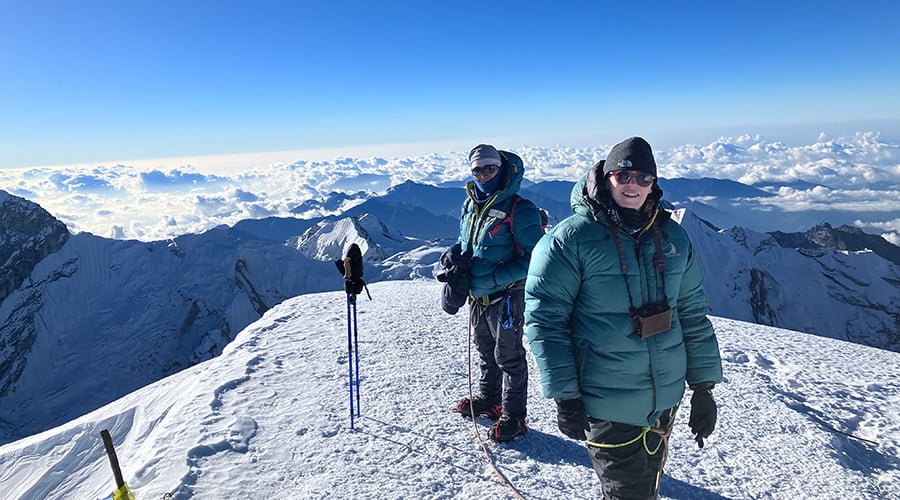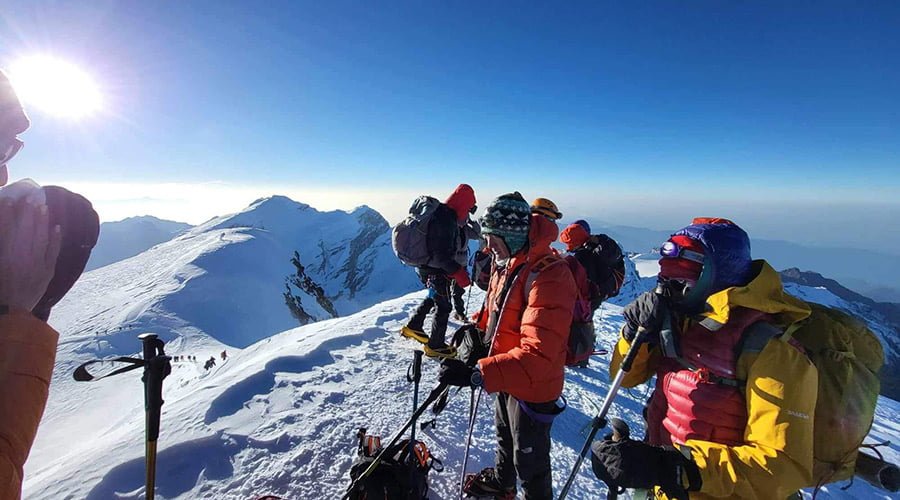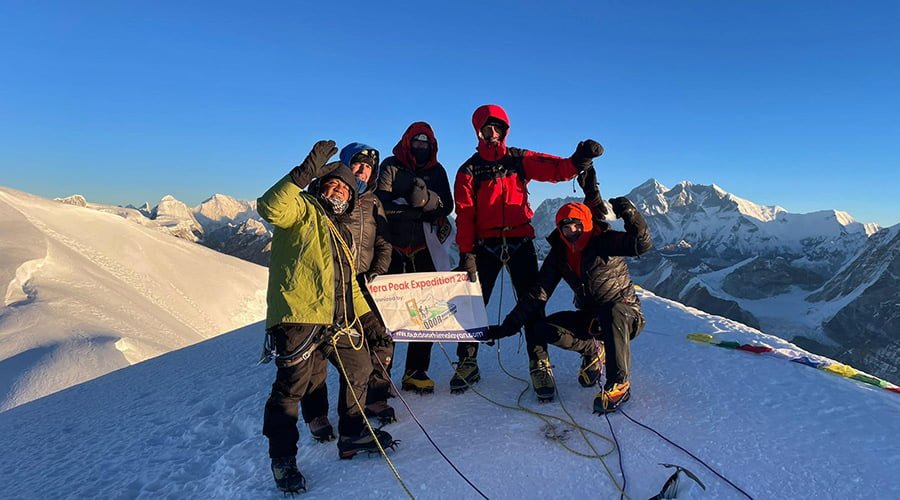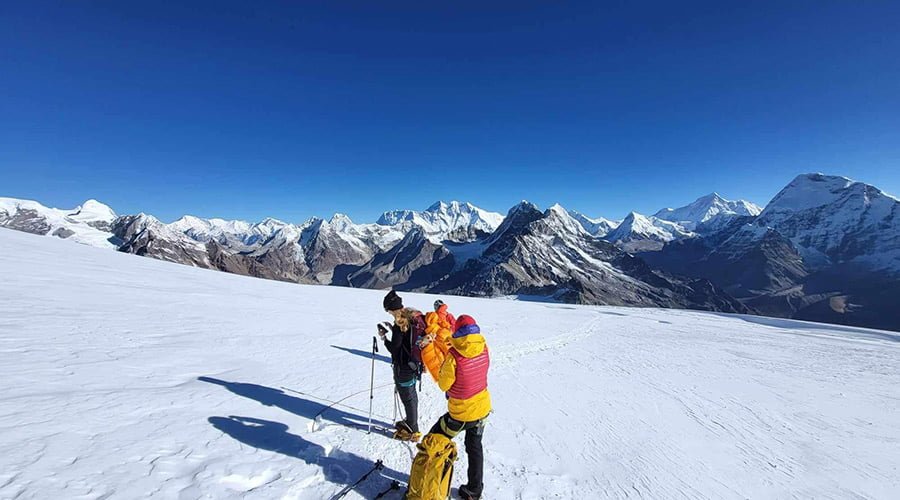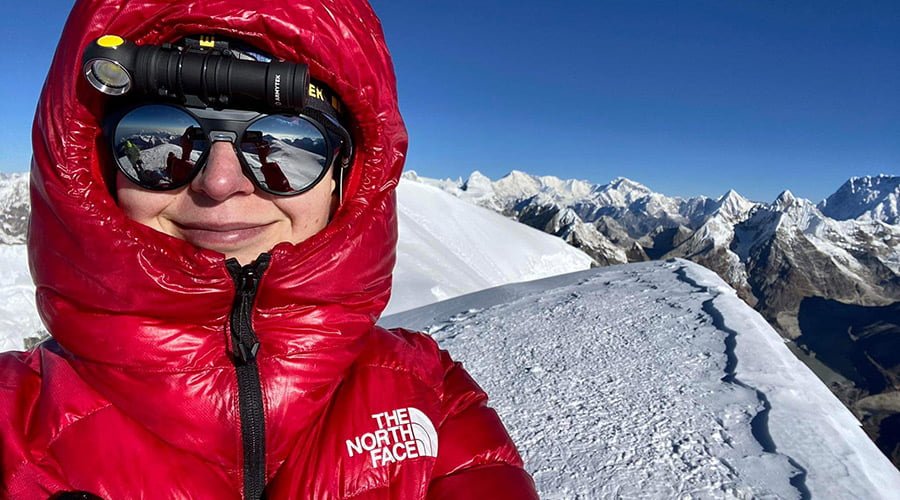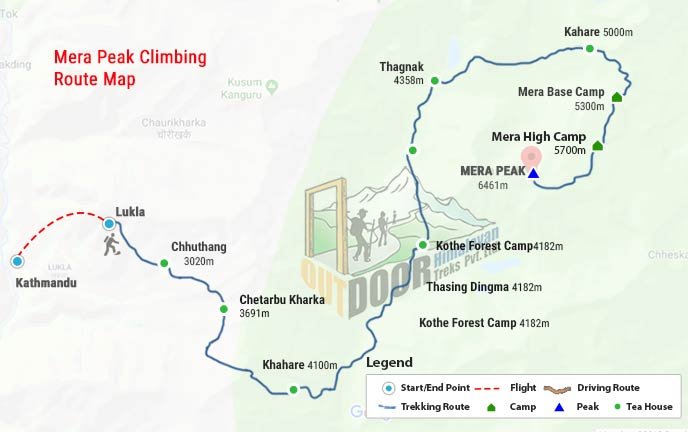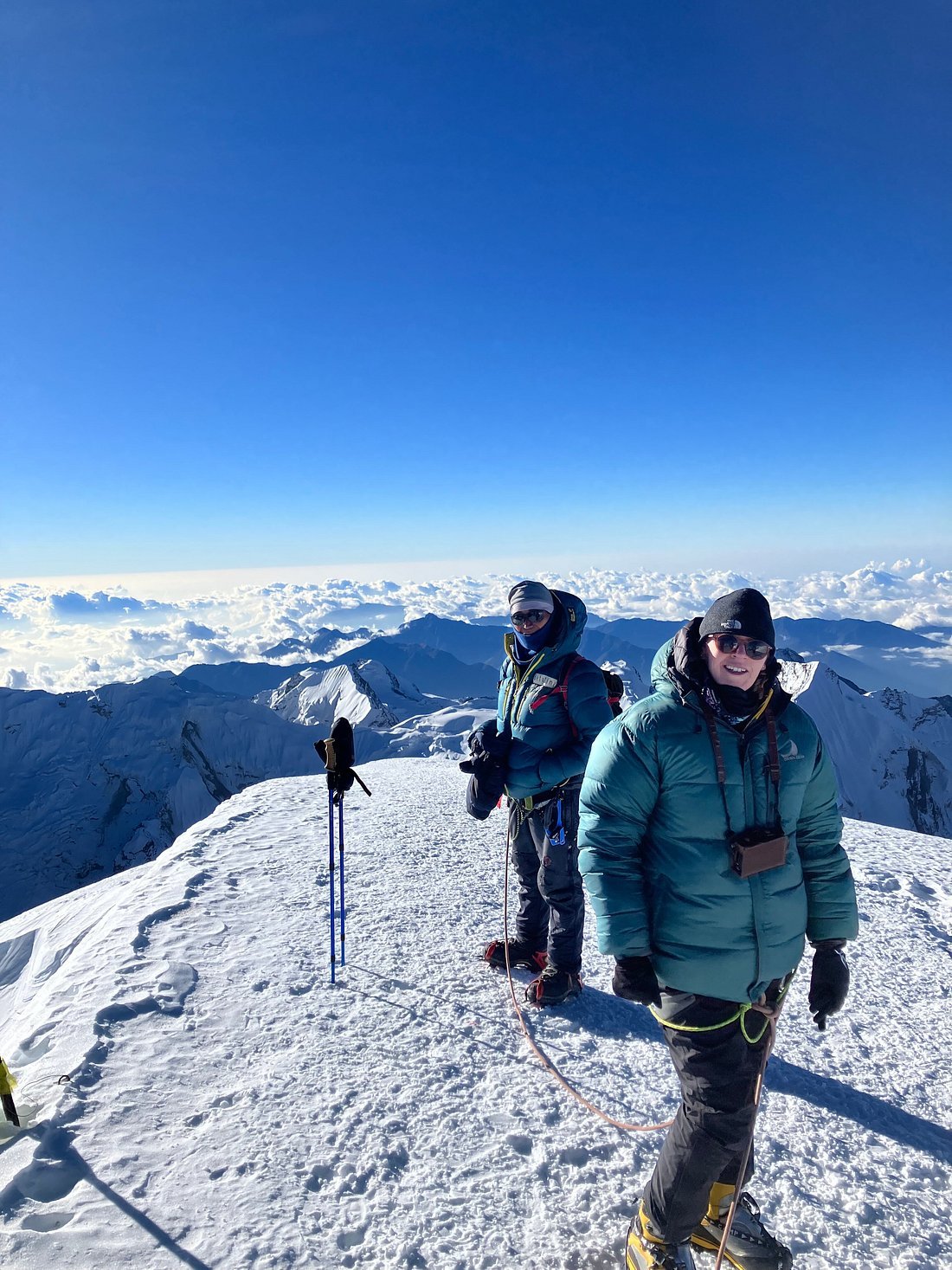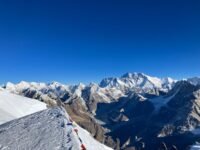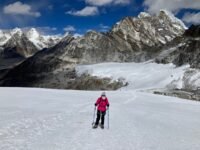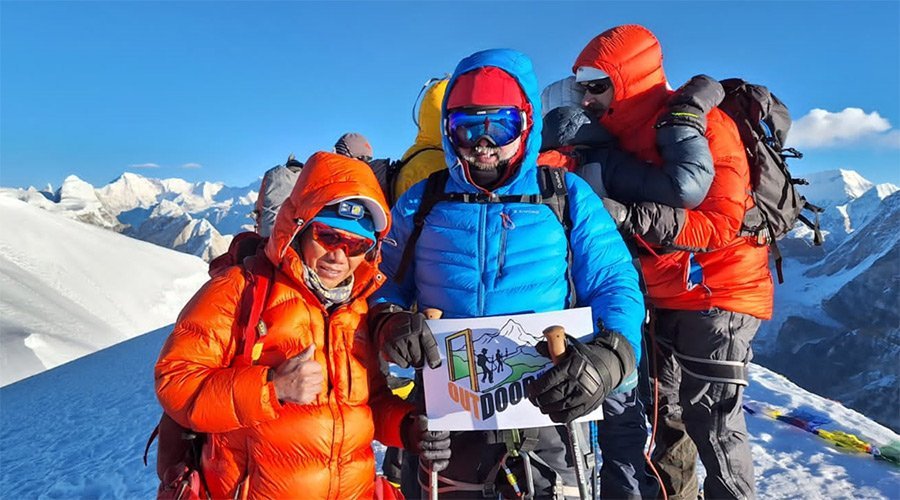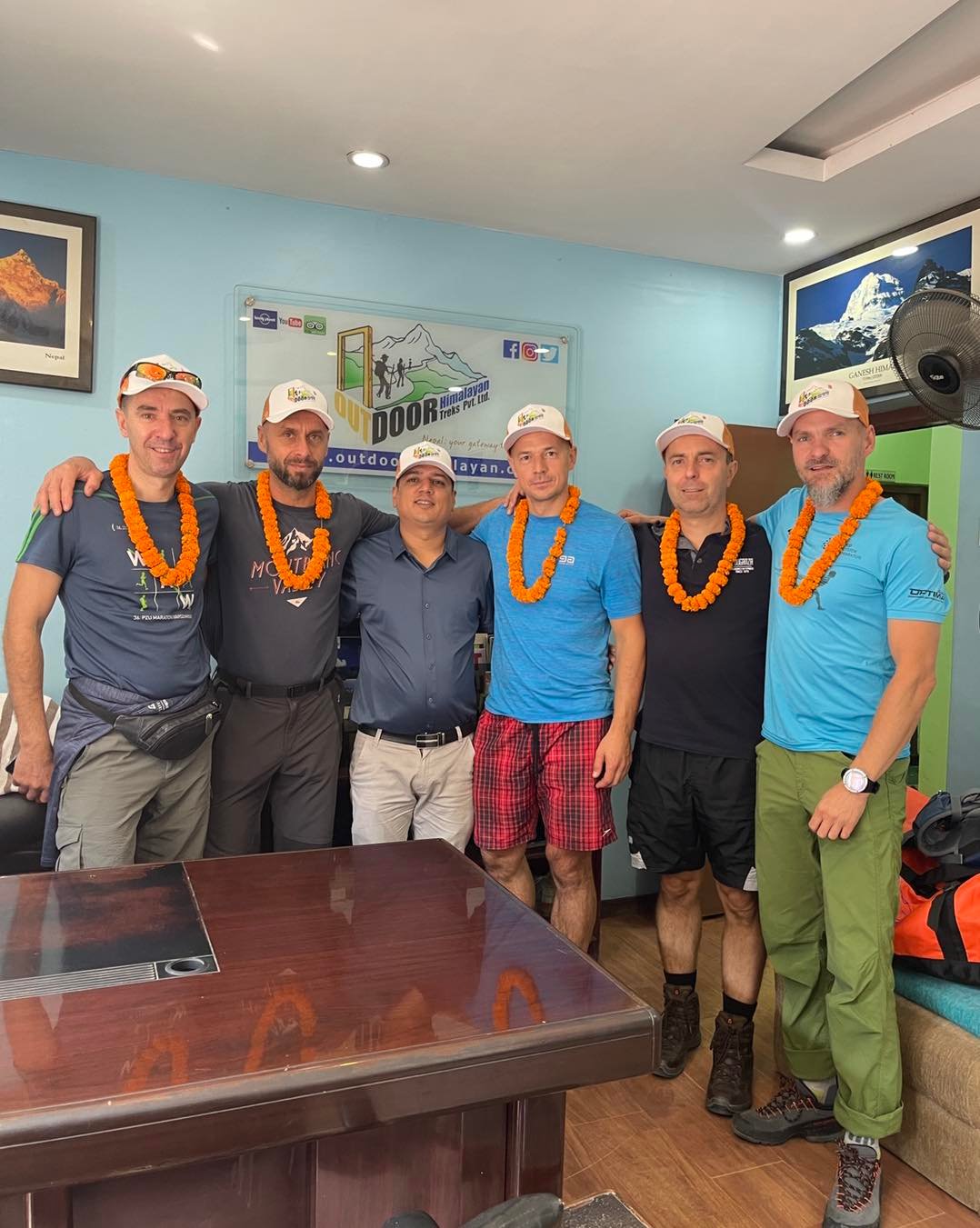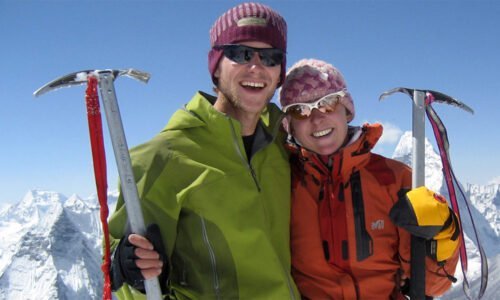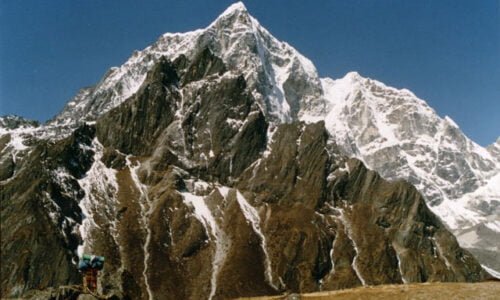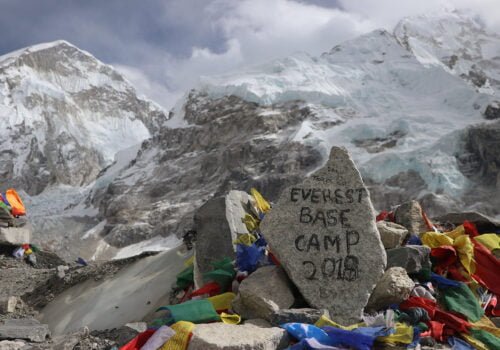Accommodation:
Teahouses or Lodges and tented camps are accommodation types during the Mera Peak Climbing that provide basic facilities (beds, quilts, and pillows) but are comfortable to stay in. Generally, bathrooms are inside the teahouses except in the higher regions. During the peak season, room sharing must be done. Tented Camping for 1 or 2 nights. Internet and phone networks are mostly stable in the lower regions. Pay an additional cost for services (Wi-Fi, laundry, hot water, and showers).
Meals:
3-course full board meals are served during the Mera Peak Climbing which are healthy and hygienic. Breakfast and dinner are served from the teahouses and lunch is served at the stopovers during the peak climbing. There are limited meal options to choose from on the menu. Professional cooks prepared meals during the tented camping. Please inform your food menu preference earlier if there is any.
Drinking water:
Drinking water during the Mera Peak Climbing is easily available. Climbers can buy Mineral Water, fill tap water, or boiled water at teahouses as their preference. Always carry a water bottle to minimize plastic pollution. Climbers can also use a water purification solution or buy mineral water which costs USD 1-2 per bottle. Boiled water is served during the tented camping.
Mera Peak Climbing is strenuous. Thus, it requires standard equipment and gear that climbers can hire or bring on their own.
Clothes: Windcheater jacket, Thermals, Insulating Down Jacket, Fleece, Long sleeve shirts, Gloves, Towels, Inner garments, Trekking pants, Trousers, Shorts, Socks, Raincoat, Balaclava, Bandana, Gaiters
Shoes: Camp shoes, Pair of hiking boots, Rubber sandals
Essential Documents: Passport, Travel Permits, Visa Photocopy, Passport size photos
Food: Light snacks, Energy bars, and drink mix
Accessories: Sunglasses, Hats/Caps, Sunscreen, Lip Balm, Water bottles, Pocket Knife, Solar chargers, Batteries, Head Lamps, Torch, Umbrella, Sewing kit, Water Purifying solution kits, reusable bags to deposit waste, separate clean/dirty clothes
Equipment: Warm Sleeping bags, Map, Trekking poles, Duffel bag, Camping Tent, Cooking Equipment
Gear: Ropes, Crampons, Ice Ax, Ice-claw, Harness, Microspikes (optional)
The transportation during the peak climbing is as scheduled in the itinerary preferred by the climbers which is as follows:
- Private vehicle transfer to/from the airport in Kathmandu
- Private vehicle ride to Ramechhap and transfer to/from the airport (only during April, May, October, and November months)
- Kathmandu-Lukla-Kathmandu flight
- Ramechhap – Lukla – Ramechhap flight (only during April, May, October, and November months)
The ideal seasons for the Mera Peak Climbing are Spring (Mar-May) and Autumn (Sep-Nov) as the weather and temperature are stable and offer incredible vistas. The winter and rainy seasons are riskier to peak climbing due to the unstable weather and temperature, slippery trails, and limited availability of accommodation and services. There is a high chance of flight cancellation during monsoon and winter.
Mera Peak Climbing requires six compulsory permits i.e. Sagarmatha National Park (SNP), Makalu Barun National Park, Mera Peak Climbing Permit, Khumbu Pasang Lhamu Rural Municipality, Trekkers Information Management System (TIMS), and Garbage Deposit Fee.
Khumbu Pasang Lhamu Rural Municipality Permit
- Foreigners- NPR 3000
- SAARC- NPR 2000
Sagarmatha National Park (SNP)
- Foreigners- NPR 3000
- SAARC- NPR 1500
Makalu Barun National Park
- Foreigners- NPR 3000
- SAARC- NPR 1500
Trekkers Information Management System (TIMS)
- Foreigners- NPR 2000/person
- SAARC- NPR 1000/person
- Diplomats/Foreign Officials & their families- NPR 500/person
Mera Peak Climbing Permit
- Spring (March-May): USD 250 per person
- Autumn (September- November): USD 125 per person
- Winter (December- February): USD 70 per person
- Summer (June-August): USD 70 per person
Garbage Deposit Fee: USD 500 per person
Documents required
- Scanned copies of passport-sized photos and passports of each participant
- Travel Insurance
- Sagarmatha National Park and Makalu Barun National Park Permit
- Khumbu Pasang Lhamu Rural Municipality
- Mera Peak Climbing Permit and Garbage Deposit Fee
- TIMS
Difficulty:
Mera Peak Climbing is a strenuous trek with a maximum elevation of 6,476 m. Peak climbing is a demanding task but achievable with good preparations. The mountaineer with good physical condition and prior experience can easily ascend this Mera Peak. The trails are rough and contain steep ascend and descend which are challenging for mountaineers. The best part of this peak climbing is it is not very technical. Only at a few sections, the use of equipment and gear is required.
Fitness:
Mera Peak Climbing demands climbers to have top-notch fitness levels. Climbers should be physically and mentally sound to join this peak climbing. With proper preparation, physical fitness, and acclimatization, it is achievable. Your familiarity with the mountainous terrain and previous trekking experience will be plus points. Besides, maintaining good health and necessary check-ups before the trek proves to be fruitful. Some physical exercises and mental exercises to carry out before the treks are as follows:
Physical Exercises
Cardiovascular Exercises, Leg Strength Exercises, Core Strength Exercises, Upper Body Strengthening, Foot and ankle Strengthening, Flexibility and Stability Exercises, and Hiking Specific Training.
Mental Exercises
Meditation, Breathing Exercises, Stress Management, Solo Reflection, Focus and Concentration Improvement, Setting a goal, Practicing problem-solving skills, Staying Calm and Positive, Enjoying every activity, etc.
Altitude sickness or acute mountain sickness (AMS) is common above an elevation of 2500 m in the mountains. As the altitude rises, oxygen level declines, and air pressure also lowers which affects the body’s functions causing altitude sickness. The maximum elevation gain during Mera Peak Climbing is 6,476 m. Since this is peak climbing, suffering from altitude sickness is high but with proper precautions and preparation, it is preventable.
Common symptoms of Altitude Sickness
Headache, nausea, dizziness, uneasiness, appetite, and sleep loss, and on extreme some can experience unconsciousness and hallucinations.
Preventions for Altitude Sickness
- Take an acclimatization rest
- Inform the guide
- Climb slowly and gradually
- Keep yourself Hydrated
- Avoid alcohol and salty foods
- Know your body limit
- Take a complete rest and sleep
- Take medicine consulting a guide
It acts as a safety net and is essential for trekking and peak climbing. We recommend getting travel insurance from a reputed company.
- Make sure that you are insured against cancellations, accidents, health, emergency evacuation and loss, theft of, or damage to, baggage, and personal effects.
- In emergencies, we will arrange for a helicopter rescue, medical treatment, and aftercare for you. All these costs shall be borne by your travel insurance company.
